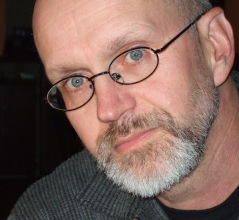Opening Move with Scott Mace
|
Scott is senior technology editor at HealthLeaders Media, read by 40,000 healthcare executives throughout
the United States. Previously, he wrote and organized Internet-related conferences for Penton Media. Before a stint at Byte Magazine, he was a senior
editor at InfoWorld, ran the networking test center team, served as Washington D.C. bureau chief, covered database management and education beats, and
wrote the first weekly column on computer games. He also wrote features for NurseWeek, as well as columns for Boardwatch, Personal Computing, and
inCider. He lives in Berkeley, California, where he also writes the Scott Mace on Healthcare and Calendar Swamp weblogs and serves on the board of directors of CalConnect,
the Calendaring and Scheduling Consortium.
|
|
 |
Backed by popular Lotus 1-2-3 spreadsheet creator Mitch Kapor, fueled by the open source revolution, the Open Software Applications Foundation's Chandler remains a personal information manager in gestation five years after work began. Scott Rosenberg, in the new book "Dreaming in Code," chronicles this process and reveals the hard truths that don't change from decade to decade about creating innovative software. Rosenberg also takes issue with the simplicity of David Platt's call for customers to demand that software should "just work."
While at Microsoft, Stephen Walli helped the company explore moving beyond more restricted shared-source software licensing schemes to freer GPL-oriented projects such as WIX. Now an outsider, he urges Microsoft to contribute far more into open source, and offers the new release of SQL Server as a candidate. Walli says why this type of contribution would benefit the company, and why attempting to liberate core Windows or Office software would be much harder.
One portion of the November 2006 technical cooperation agreement between Novell and Microsoft covers interoperability between the Microsoft Office and OpenOffice.org office suites. How much compatibility is there today between the two, and how much more compatibility can these two organizations achieve working together? Will all users of OpenOffice and Microsoft Office benefit? In this episode, senior Novell officials address these questions.
Open source Web server software available under the Apache license powers many corporations. Standing behind and supporting much popular Apache software is Covalent Technologies. Learn why Covalent contributed its proprietary modules back to Apache, and how it indemnifies customers using code Covalent doesn't own. CEO Mark Brewer also explains how Covalent chooses which Apache projects to support, and why it expedited its support of the Geronimo application server.
Microsoft's recent embrace of Novell's SUSE Linux distribution, and Oracle's recent embrace of Red Hat Linux, raise the question anew: Can Linux avoid the fragmentation that crippled adoption of Unix? The Free Standards Group is dedicated to "safeguarding the future of Linux through standards." Jim Zemlin describes FSG's initiatives: the Linux Standard Base and related testing and certification efforts.
Krugle bills itself as "the search engine for developers," and although Google is now a competitor, Krugle takes its own unique approach to searching source code, primarily open source. In this interview, Ken Krugler talks about the particular challenges of building a search engine for software developers.
The Apache Tomcat Web server, Roller blogging server and Derby database initiatives all share one thing: substantial contributions by Sun Microsystems. Apache is also incubating Harmony, an open source implementation of Java. In this episode, a trio of Sun open source leaders explains where and how Sun contributes to Apache projects, and why it is content for now to let Harmony proceed without Sun's direct contribution.
Big vendors such as IBM and Microsoft are building their Web services stacks right into their operating systems and middleware, but that still leaves room for an open source-powered alternative. Paul Fremantle describes the WS02 open-source implementations of the Axis 2 Web services framework, as well as security and reliabile messaging components that help IT organizations stay agile and avoid vendor lock-in.
Hyperic HQ, a platform for managing web infrastructure, was released under an open source license this summer. With 15,000 downloads in two months, the move is already helping improve software quality in unexpected ways. Hyperic CEO Javier Soltero talks about moving his product from a perpetual commercial license to the GPL plus subscription-only proprietary extensions for enterprises.
What is an open standard? Vendors and standards bodies are currently free to promote any definition they wish, but the legal costs of dealing with the confusion are rising. Now, the open source community is sparking a broader discussion aimed at a new consensus on the defiinition of the term open standard. Danese Cooper explains the Open Standards Requirement, an attempt to define five key criteria, and how they will evolve through public discussion.
